Swiss meringue buttercream is the BEST in the world of buttercream! This frosting is light and fluffy, silky smooth and creamy, and super stable for decorating cakes and cupcakes.
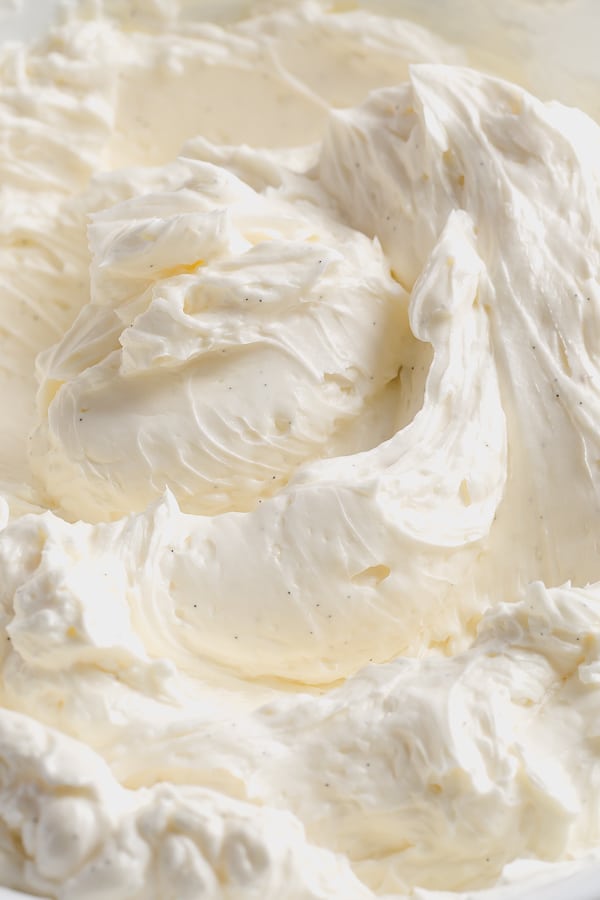
Table of Contents
Pin this now to find it later
Pin ItWhy you’ll love Swiss buttercream:
When it comes to ease and simplicity, American buttercream wins. But when it comes to taste and texture, nothing beats Swiss meringue buttercream!
- Simple ingredients: only 5 basic ingredients
- Incredible texture: light, fluffy, creamy, and silky smooth
- Balanced taste: not too sweet
- Easy to use: perfect consistency for piping and frosting
- Easy to make: with few key tips for success
What is Swiss meringue buttercream?
Swiss meringue buttercream is a buttercream frosting made with Swiss meringue and butter, plus other flavorings like vanilla.
Swiss meringue is made of egg whites and sugar cooked in a double-boiler (Bain Marie), then whipped into fluffy meringue.
This buttercream is an ideal frosting for decorating layer cakes, cupcakes, and filling macarons!
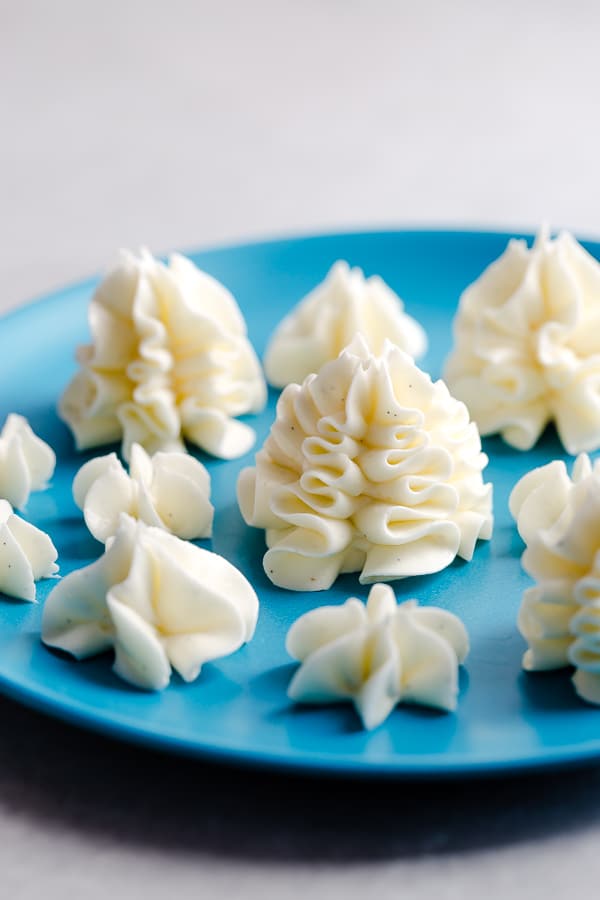
Ingredient Notes:
- Egg whites – Separate the egg whites while they’re cold. I’ve tested this recipe with fresh and carton egg whites. Fresh is better because not all brands of carton egg whites work for meringue. If you want to give it a try, you’ll need 210 grams of liquid egg whites.
- Granulated sugar – Unlike traditional buttercream, Swiss meringue buttercream calls for granulated sugar, not powdered sugar!
- Kosher salt balances the sweetness.
- Unsalted butter – The butter should be soft, but not too soft. You should feel some resistance when you push into room-temperature butter with your finger. If your finger sinks right to the bottom, then your butter is too soft, and you could end up with soupy frosting.
- Vanilla beans – I love using vanilla bean pods to flavor the buttercream. Simply slice the bean pod lengthwise and scrape the vanilla beans. I use vanilla bean pods from my homemade vanilla extract. The vanilla specks are so charming. You can substitute vanilla bean paste for vanilla bean pod as well.
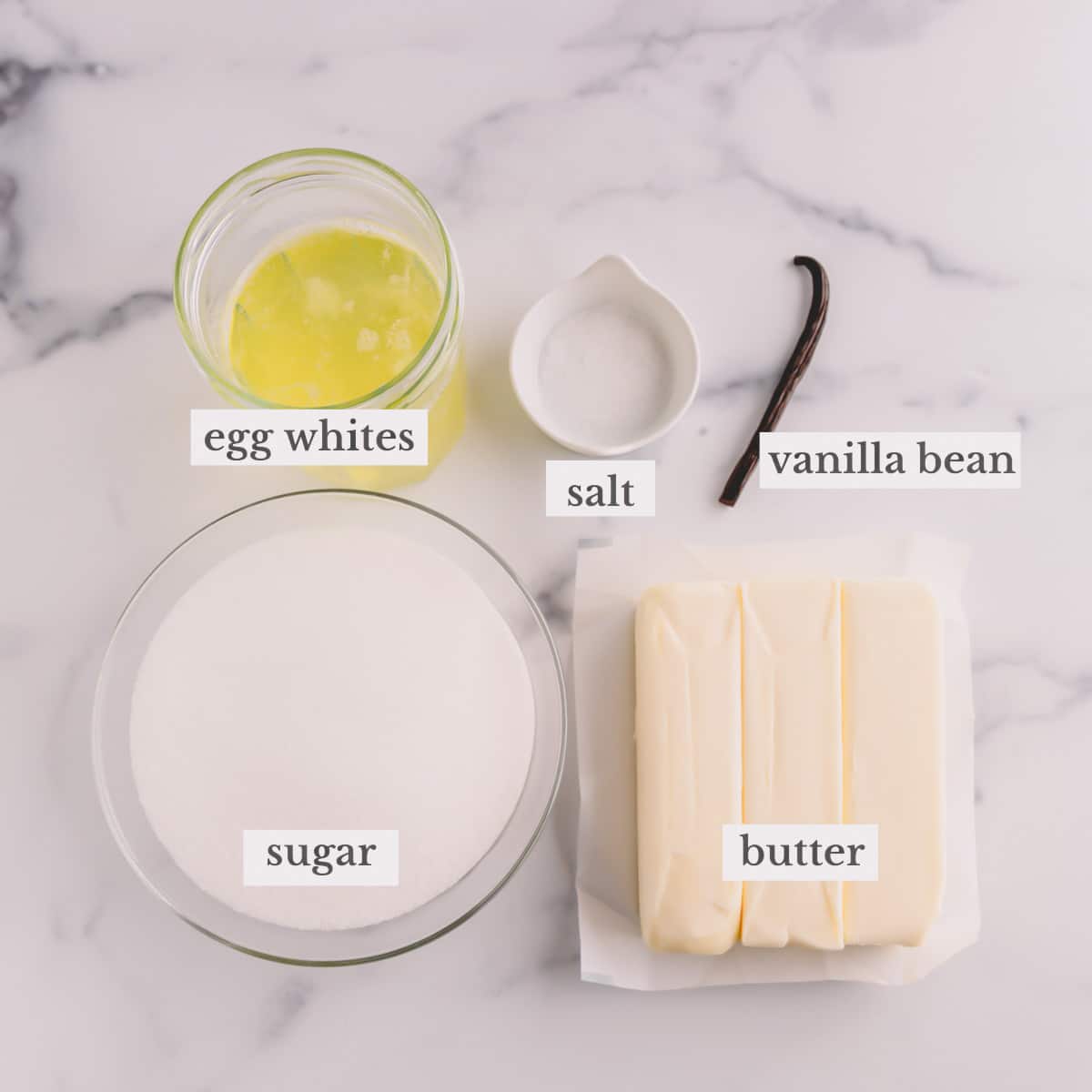
How to make Swiss meringue buttercream:
1. Make Swiss Meringue
- Combine sugar and egg whites in a heat-proof bowl, and place it over a pot of simmering water.
- Cook the egg whites gently until it reaches 160°F, whisking it frequently. (This’s my favorite thermometer!) You shouldn’t feel any sugar granules when you rub the mixture between your fingertips.
- Remove the sugar mixture from the heat and whisk it until stiff peaks form, about 10 minutes. At this point, the meringue should be completely cooled.
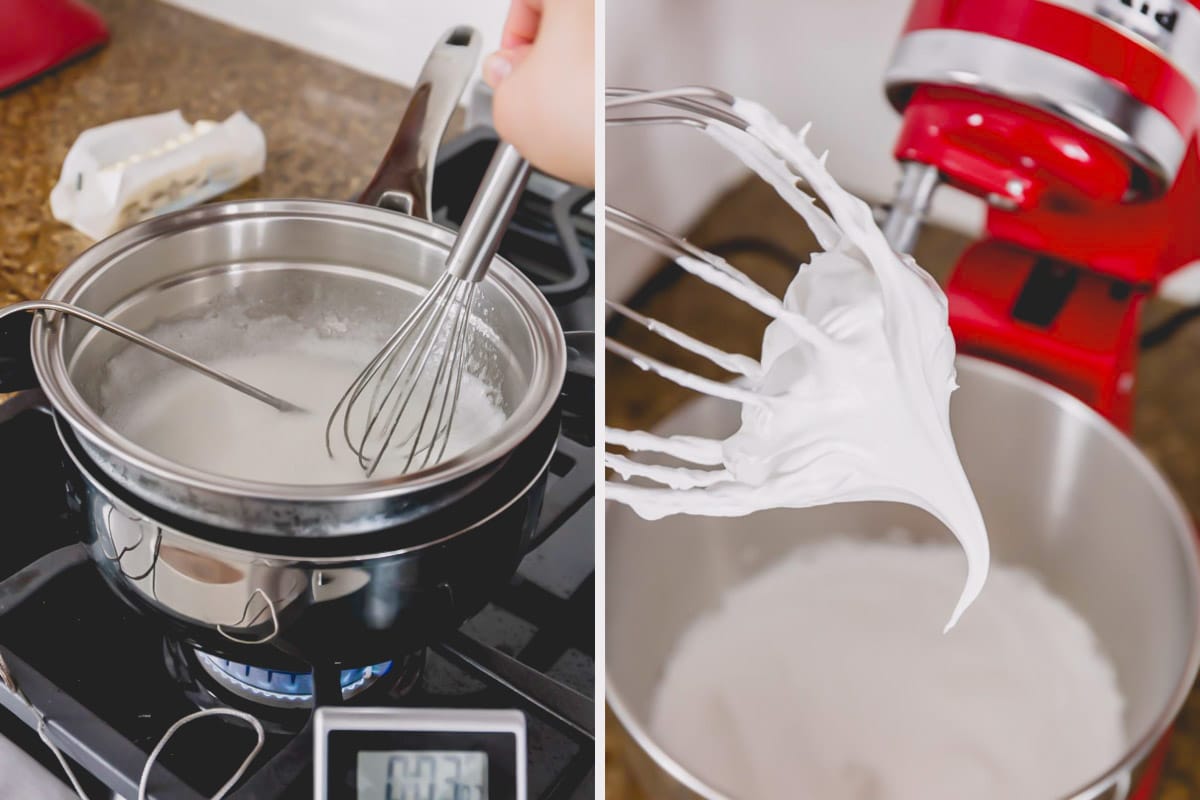
2. Add Butter
- Reduce the speed to medium, and start adding the butter 1 tablespoon at a time. Make sure the butter is fully incorporated before adding the next tablespoon. Don’t worry if the buttercream starts to curdle halfway, this is normal! Just keep beating and adding the butter!
- Continue whisking the buttercream until it’s smooth, light, and fluffy, about 10 minutes.
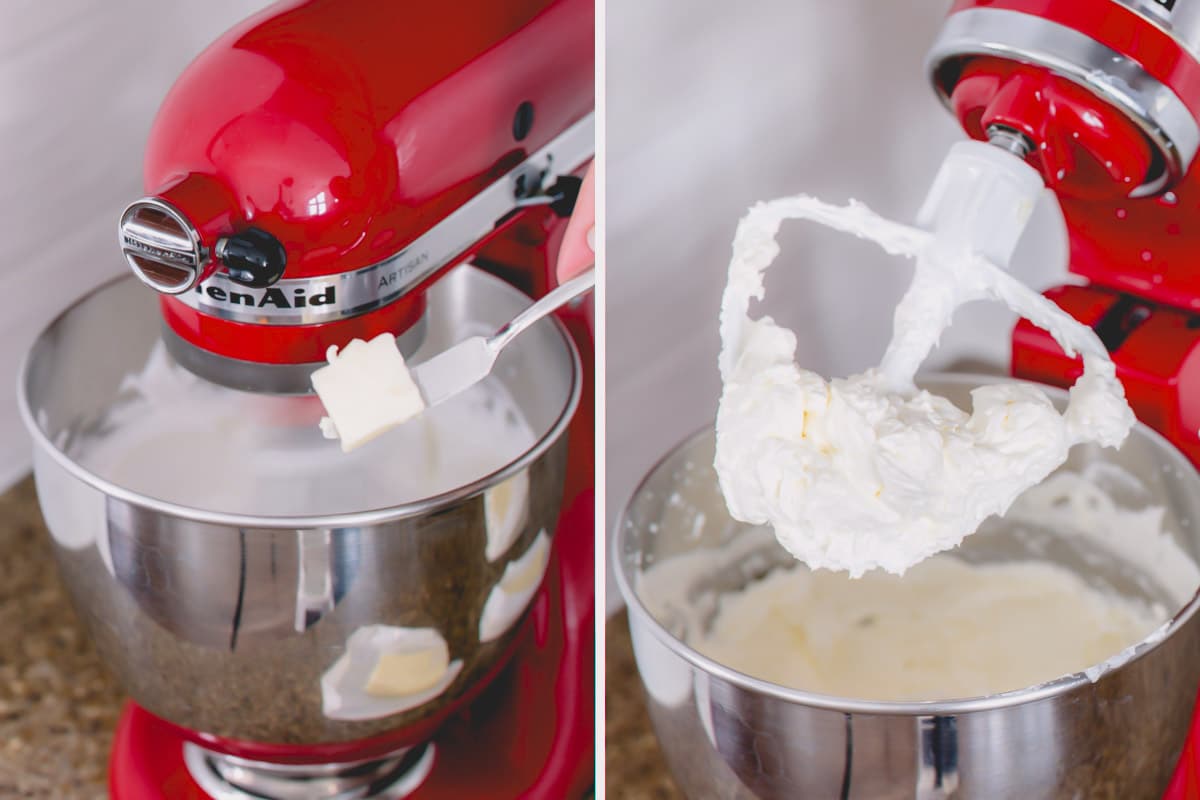
Get your butter right
It’s important to use room-temperature butter. When you push a finger into it, the butter should dent with some resistance.
- Too soft butter will cause soupy frosting.
- Too cold butter will curdle the buttercream.
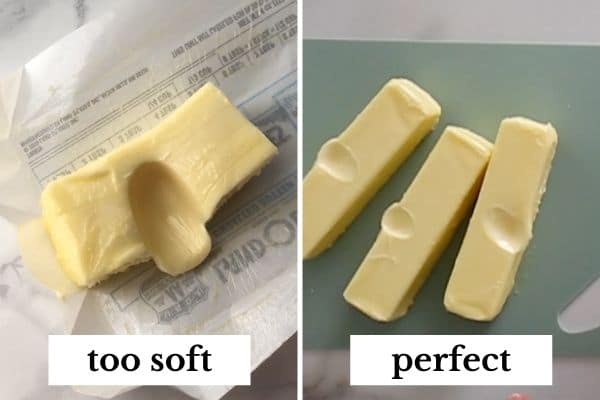
3. Add vanilla
- Switch to paddle attachment and add scraped vanilla beans, or vanilla bean paste.
- Beat the buttercream until well combined, about a minute.
You can also add food coloring at this stage. It’s best to use gel food coloring.
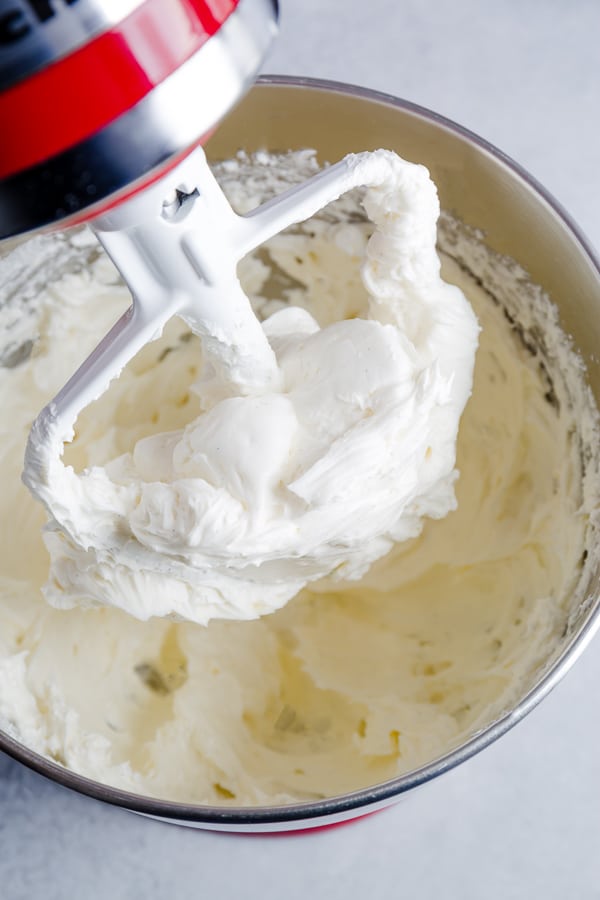
Smooth Buttercream Tip
For ultra-smooth buttercream, beat the buttercream with paddle attachment on low speed to remove excess air pockets.
Tips for Success
- Make sure the bowl and whisks are completely grease-free. It’s ideal to use a stainless steel or glass bowl for making meringue.
- When separating egg whites, never break the eggs over your main egg white bowl. Instead, use this 3-bowl method: 1 bowl for collecting egg whites, 1 for egg yolks, and 1 for breaking and separating each egg.
- Take the butter out of the fridge 1-2 hours before making the frosting. Butter at room temperature should be cold to touch and dent when pressed without losing its shape.
Leftover egg yolks
Don’t throw away leftover egg yolks! I have lots of delicious recipes to use up extra egg yolks!
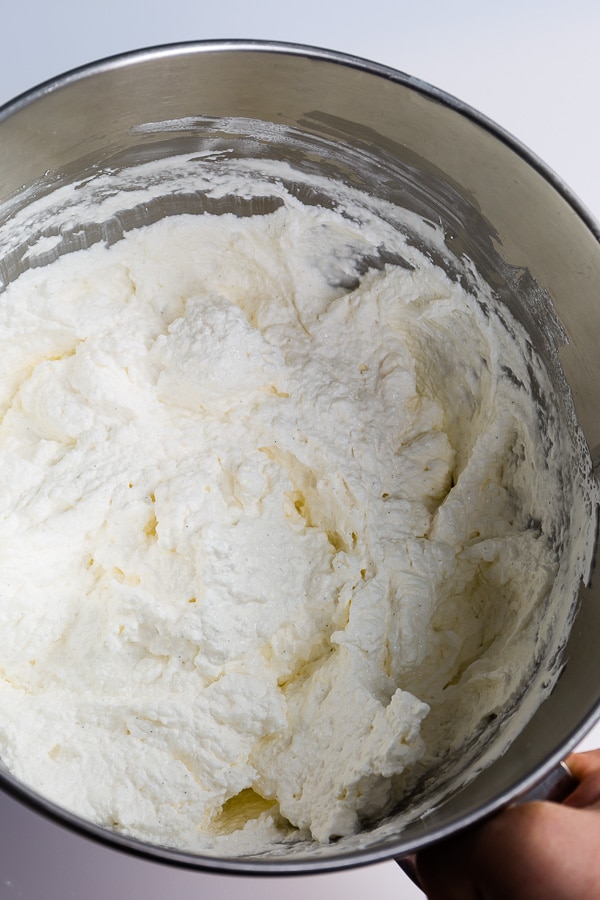
Troubleshooting Swiss Meringue Buttercream
Meringue won’t reach stiff peaks
This could happen if the egg whites were in contact with any fat, grease, or egg yolks. Make sure to clean your bowls and whisks thoroughly, wipe the utensils with vinegar or lemon juice, if needed. And be careful when separating egg whites and yolks.
I’ve encountered this issue with carton egg whites couple of times. I added butter into soft meringue, and buttercream turned out just fine! So if you got soft meringue and it’s not stiffening up, go ahead and add butter as per instructions.
Curdled buttercream
If your buttercream starts to curdle in the process of adding butter, or right after adding all the butter, don’t panic. It’s totally normal. To fix: just continue beating! And I promise, it’ll magically come together at the end.
And if it doesn’t, simply place the bowl with buttercream over simmering water. Let the buttercream melt a little around the edges, then try whipping it again.
Soupy buttercream
It happens when the meringue was still warm when you started to add butter. Or the butter was too soft and started to melt in the meringue. To fix: place the bowl with buttercream in the fridge for 15-30 minutes, and then whip it again.
Tastes too buttery
If your buttercream is thick, heavy, and buttery, it just needs more whipping. When done right, Swiss meringue buttercream is super light, fluffy, and silky smooth.
Make Ahead Tips:
Swiss buttercream frosting is an ideal frosting to make in advance. Here are 3 ways to store it:
- On the counter: It’s ok to keep Swiss meringue buttercream at room temperature overnight. (It has enough sugar and fat to keep it from spoiling!)
- Refrigerator: You can refrigerate this buttercream in an airtight container for up to 2 weeks.
- Freezer: Swiss buttercream also freezes well. It’ll freeze well in airtight container for up to 3 months!
Thaw frozen buttercream on the counter overnight. Whip it before using.
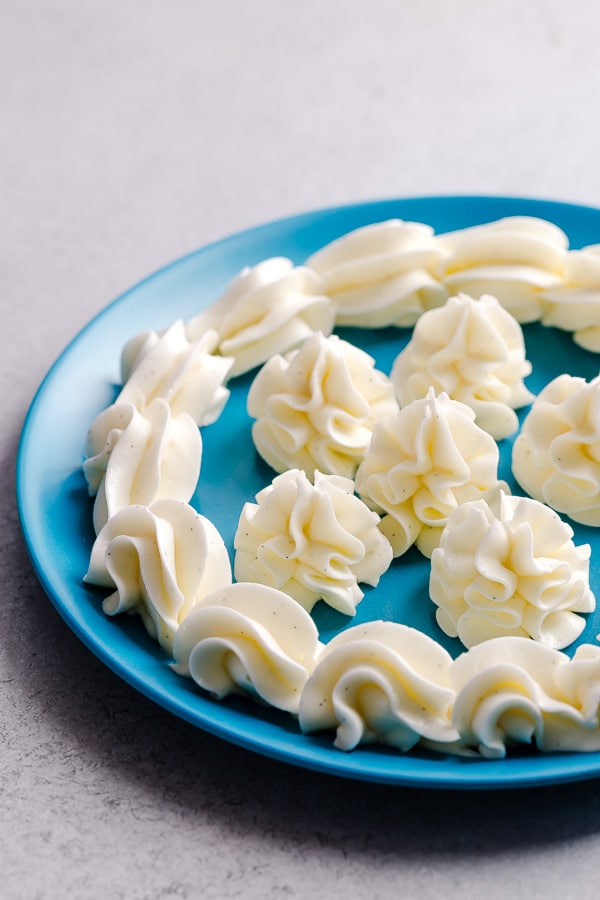
Swiss Buttercream FAQs:
Since we’re cooking egg whites in a double boiler until it reaches 160°F, it’s completely safe to eat. We pasteurized the egg whites by cooking it in double boiler.
To be safer, I highly recommend using an instant thermometer to make sure egg whites have reached the proper temperature!
Absolutely! In fact, a lot of people prefer flavored Swiss buttercream. You can substitute any extract for vanilla extract. Also, check out my Chocolate Swiss Meringue Buttercream and Salted Caramel Swiss Buttercream.
Yes, I recommend using gel food coloring.
I’ve used carton egg whites with great success. Be sure to read the labels, as some carton egg whites specify that it’s not for meringue.
For food safety, I strongly recommend using a thermometer to ensure the eggs reach 160°F. If using pasteurized (carton) egg whites, you can skip a thermometer. But be sure the sugar is completely dissolved, you don’t feel any sugar granules between your fingers.
If your buttercream has a yellowish hue, add a very small amount of violet gel food coloring. I use a toothpick to smear a tiny bit of color. And then whip it well.
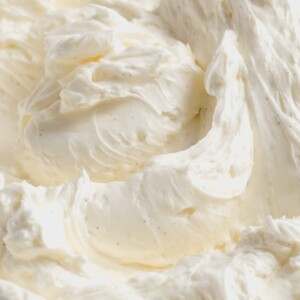
Swiss Meringue Buttercream
Ingredients
- 6 (210 g) egg whites Note 1
- 1 ½ cups (300 g) granulated sugar
- ½ teaspoon coarse kosher salt
- 1 ½ cups (340 g) unsalted butter at room temperature and sliced, Note 2
- 1 vanilla bean split and scraped (or 1 teaspoon vanilla bean paste)
Instructions
To make Swiss meringue:
- In a small saucepan, bring a small amount of water to a boil. Reduce the heat to simmer.
- In a medium heat-proof bowl, whisk together egg whites and sugar and place it over the saucepan with simmering water. (This is a makeshift double boiler. Make sure the bottom of the top bowl doesn't touch the water.)
- Cook the egg white mixture until sugar is completely melted and it reaches 160°F (70°C) stirring frequently, about 5 minutes. (This is my favorite thermometer!)
- Now, remove the bowl with the egg white mixture from heat. Then whisk it on medium speed for a minute, then slowly increase the speed to medium-high and beat until stiff peaks form and the mixture is cool to touch about 10 minutes. (It may take longer with a hand mixer.)
- Once the meringue reaches stiff peaks, scrape the side of the bowl with a spatula and add salt.
To make the buttercream:
- Turn on the mixer at medium speed and start adding butter, one tablespoon at a time. Make sure the butter is fully incorporated before adding the next piece. (NOTE: It's normal if buttercream starts to curdle halfway. Keep adding the butter!)
- Keep whisking the buttercream until smooth, light and fluffy, about 10 minutes.
- Now, switch to a paddle attachment and add vanilla bean. Beat the buttercream until well combined, about a minute.
Tips & Notes
Swiss meringue buttercream can be made in advance and frozen for up to 3 months or refrigerated for up to 2 weeks. Thaw the frozen buttercream on the counter overnight. Whip it before using.
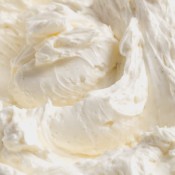



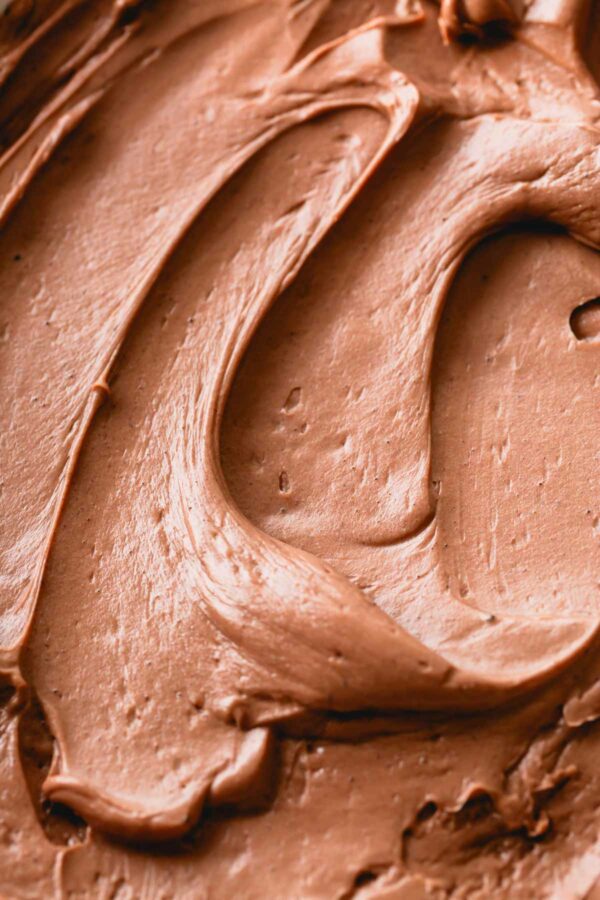


I made this and the taste is too buttery. I love the texture of it, but I’m still trying to change the taste. No matter how much vanilla I put in it still has a strong taste of butter. I followed the recipe to a T so I’m not sure why it came out strong like this. Any ideas on how to fix this. Your trouble shoot section title says, “tastes too buttery” but then it talks about if it’s done right it will be light and fluffy, but doesn’t go over about how to fix the taste.
Hi, Jen. Thanks for your feedback. If you’re happy with the texture, I think you may fall into the camp of people who are just not a fan of Swiss buttercream. In that case, you might want to make a flavored variation of Swiss buttercream instead of vanilla. Try adding salted caramel or melted chocolate into you vanilla buttercream and see you how you like it. Hope this helps.
Making my daughters wedding cake… I’ve only done a few cakes, I will not use anything else for frosting but your recipe. Sets to just the right firmness flavor not tooooo sweet and goes on like silk. This is far superior to any other frosting !!! Followed recipe to the letter -used vanilla paste mmmm
Thank you
Yay, I’m so happy you loved the recipe. It’s my favorite frosting for sure! And congrats on your daughter’s wedding! You’re the best mon to make their wedding cake. Thank you for your feedback!
I tried to make this recipe and something always goes wrong after adding the butter. The first batch didn’t thicken even after refrigerating. The second curdled so I did the let it melt? It just liquefied.
This is the best icing I’ve ever made and I have made a LOT of icing. The only issue I had is I made it the day before, brought it to room temp and tried to rewhip it. It separated and curdled. Not sure what I did wrong…
Hi, Janet. So happy you loved this buttercream recipe!! I think your issue may have happened due to temperature difference. Sometimes, portion of the buttercream may have thawed and the inside may have been still cold. But if you’re confident that they were thoroughly thawed, then it may just needed a little more whipping.
Thank you for your detailed instructions and notes on making Swiss Meringue Buttercream. I’ve made Swiss several times and occasionally have problems with it, your help has solved my issuses!
Yay, so glad to hear that, Rea Rae!!! Thank you for your feedback!
Hello,
I’m looking to make a pistachio frosting for a cake and was wondering if you’d think it would work with this recipe? I’m going to make a pistachio paste but wondered if it might mess up the consistency?
Many Thanks,
Helen
Hi, Helen. Yes, absolutely you can add pistachio paste into this buttercream.
Thank you so much for the speedy reply! I made it today and it was delicious!!
So happy you loved it!!! Thanks for the feedback, Helen.
Hi Shinee,
I just made the vanilla buttercream..it turned out delicious. I wanted to use it to make my daughters first birthday cake. I was hoping you have any suggestions for a fruit filling (preferably strawberry or raspberry) recipe and vanilla cake recipe that you think would complement the buttercream well.
Thank you!
I tried your recipe after various attempts to make a good buttercream (which I all failed), and this was the only way to achieve it! So, thank you for your knowledge!
Yay, so glad my recipe worked for you, Maria. Thank you for your feedback!!